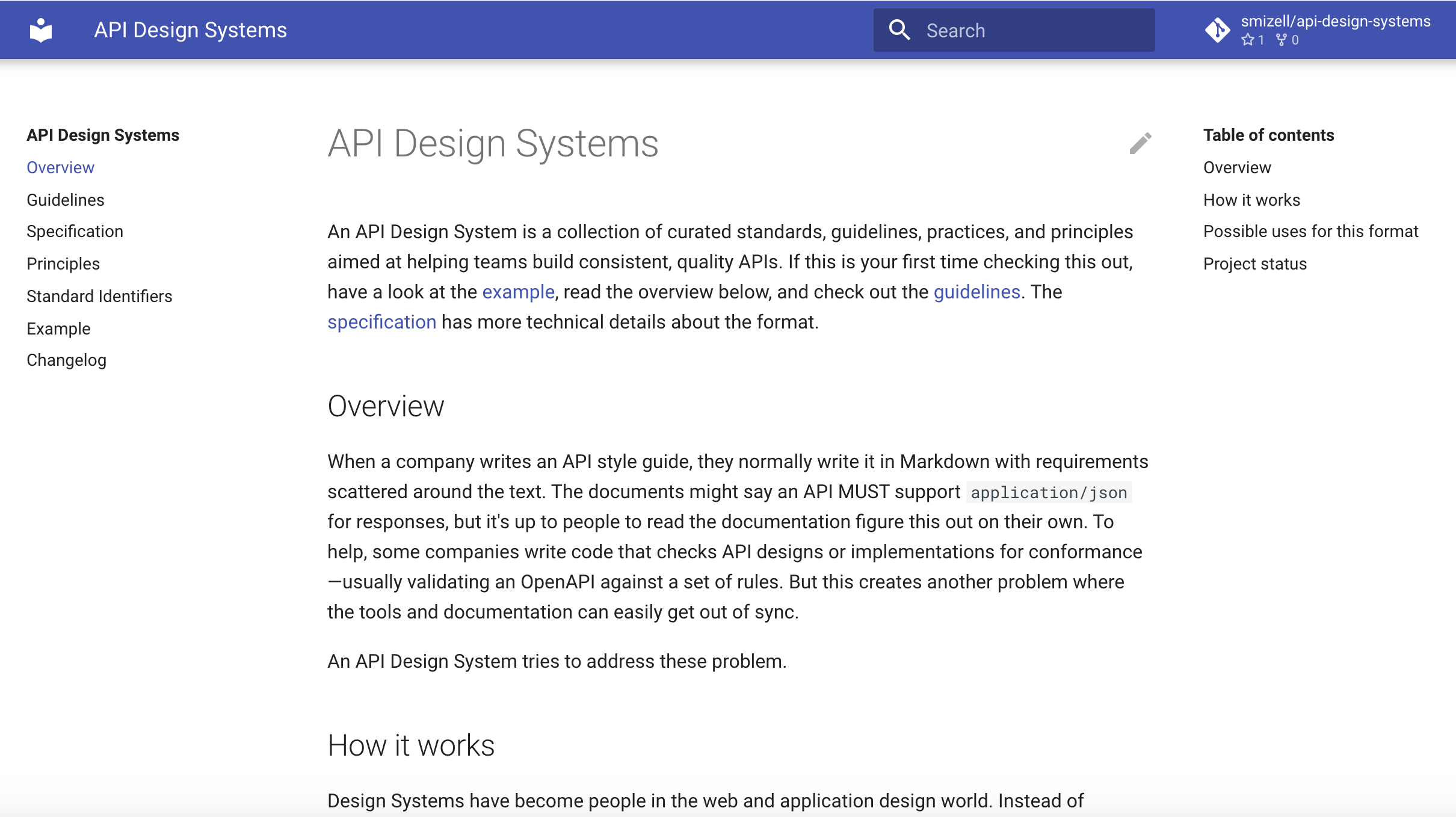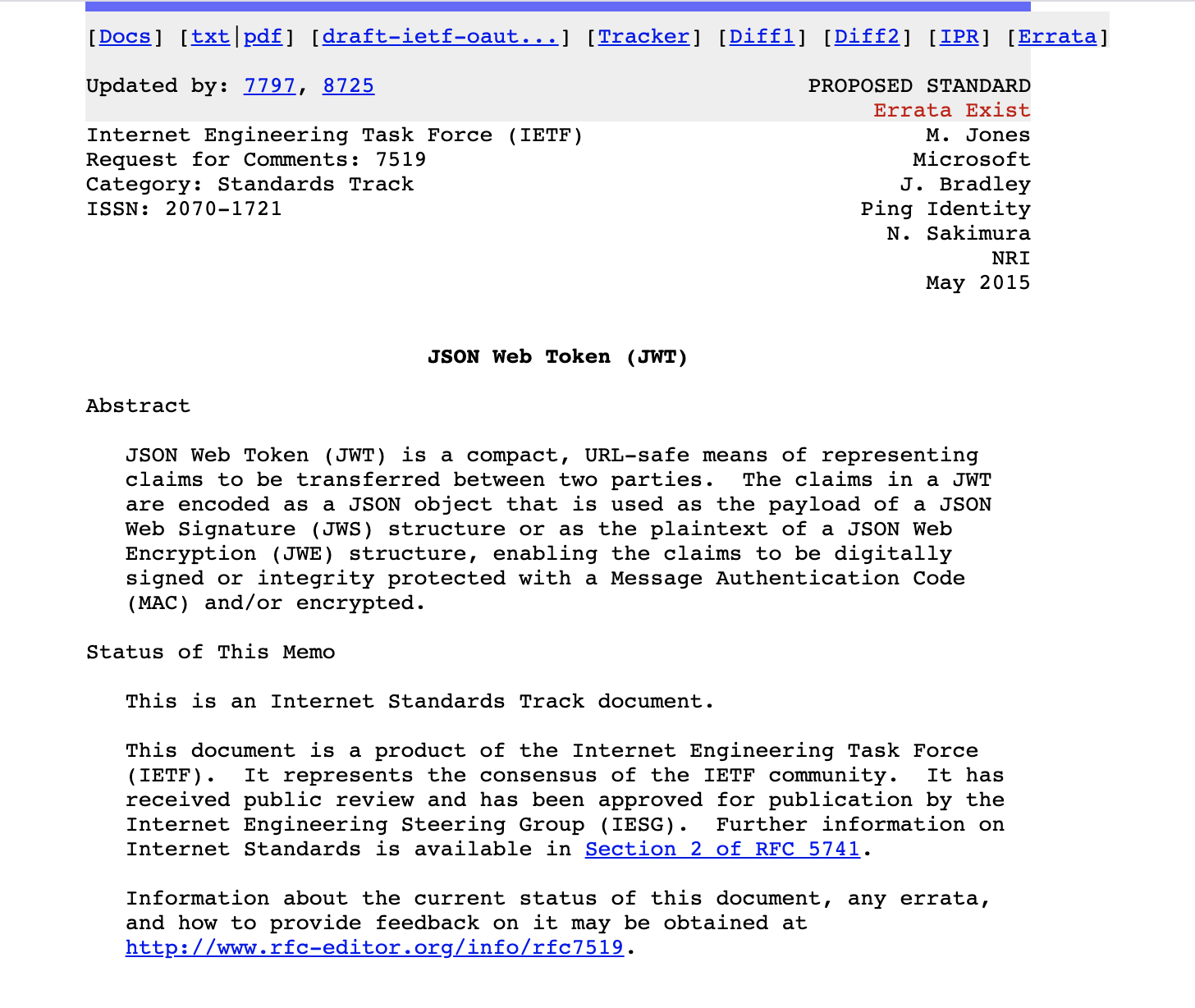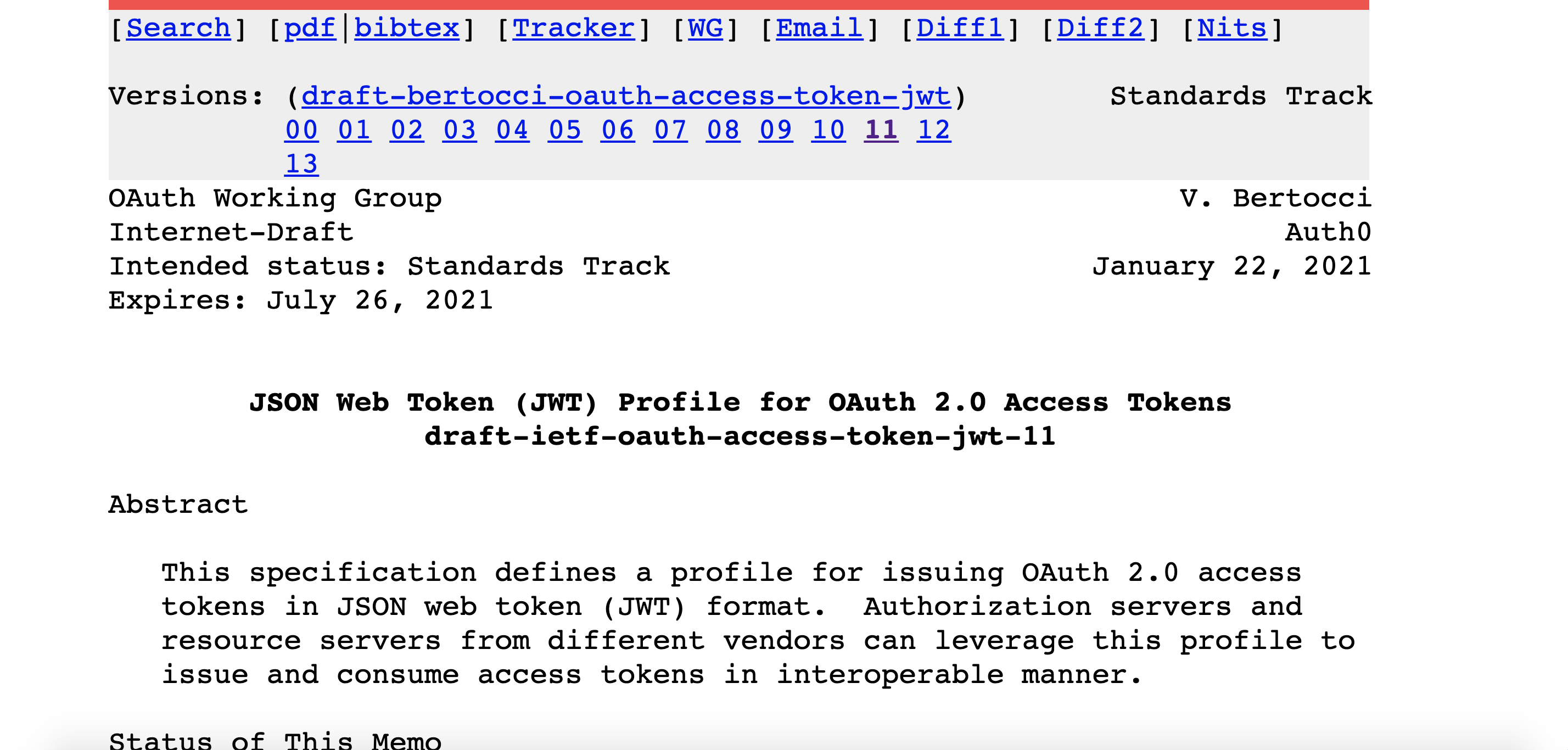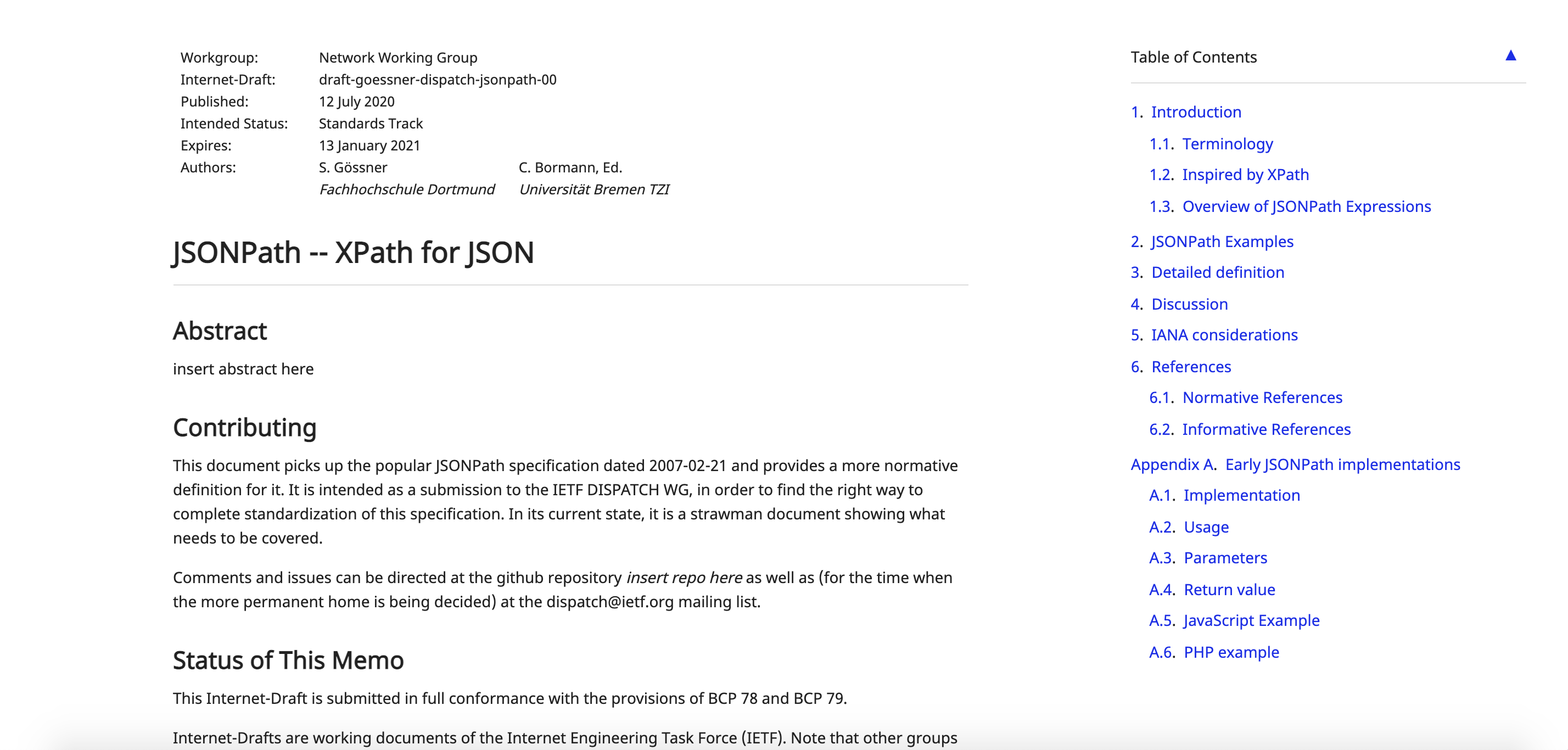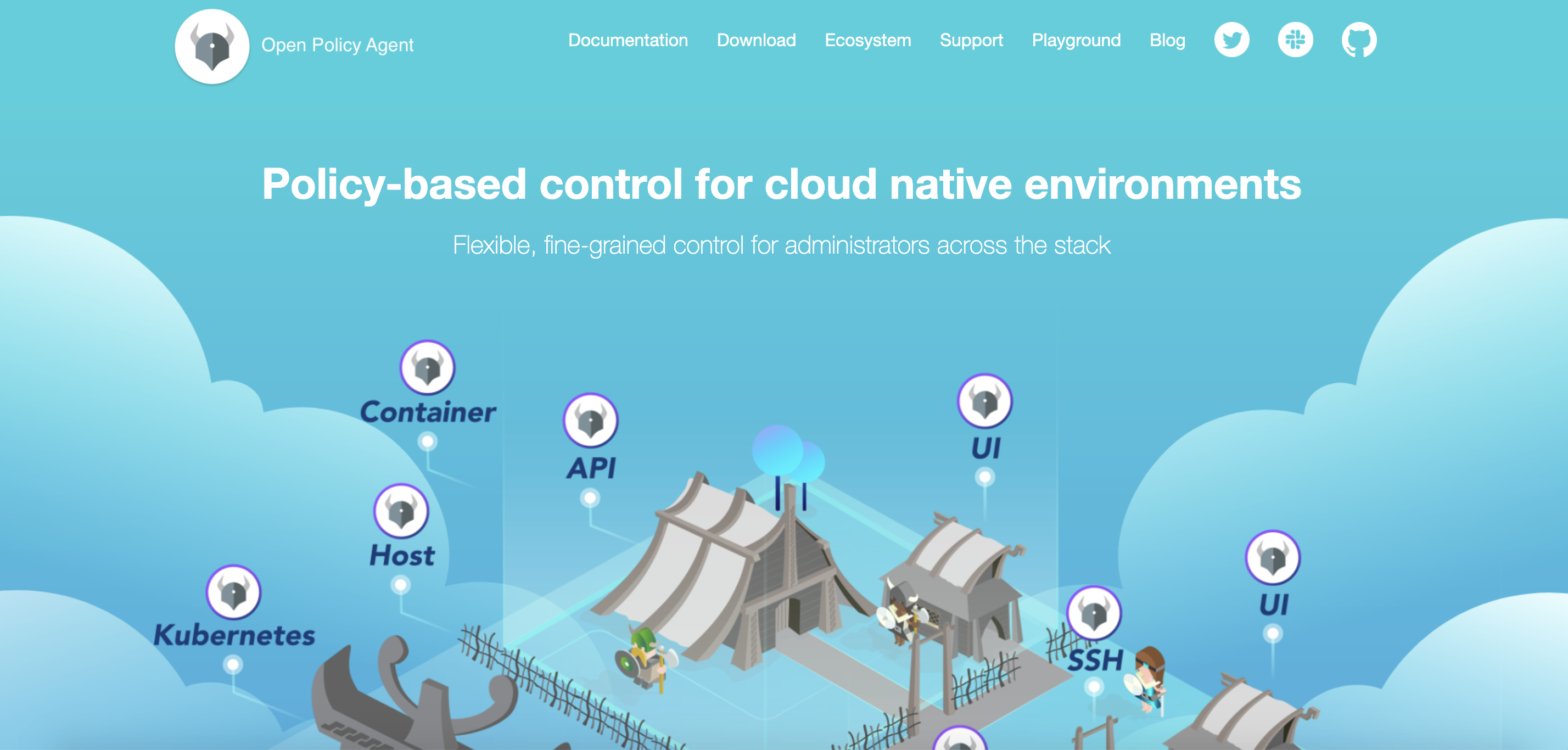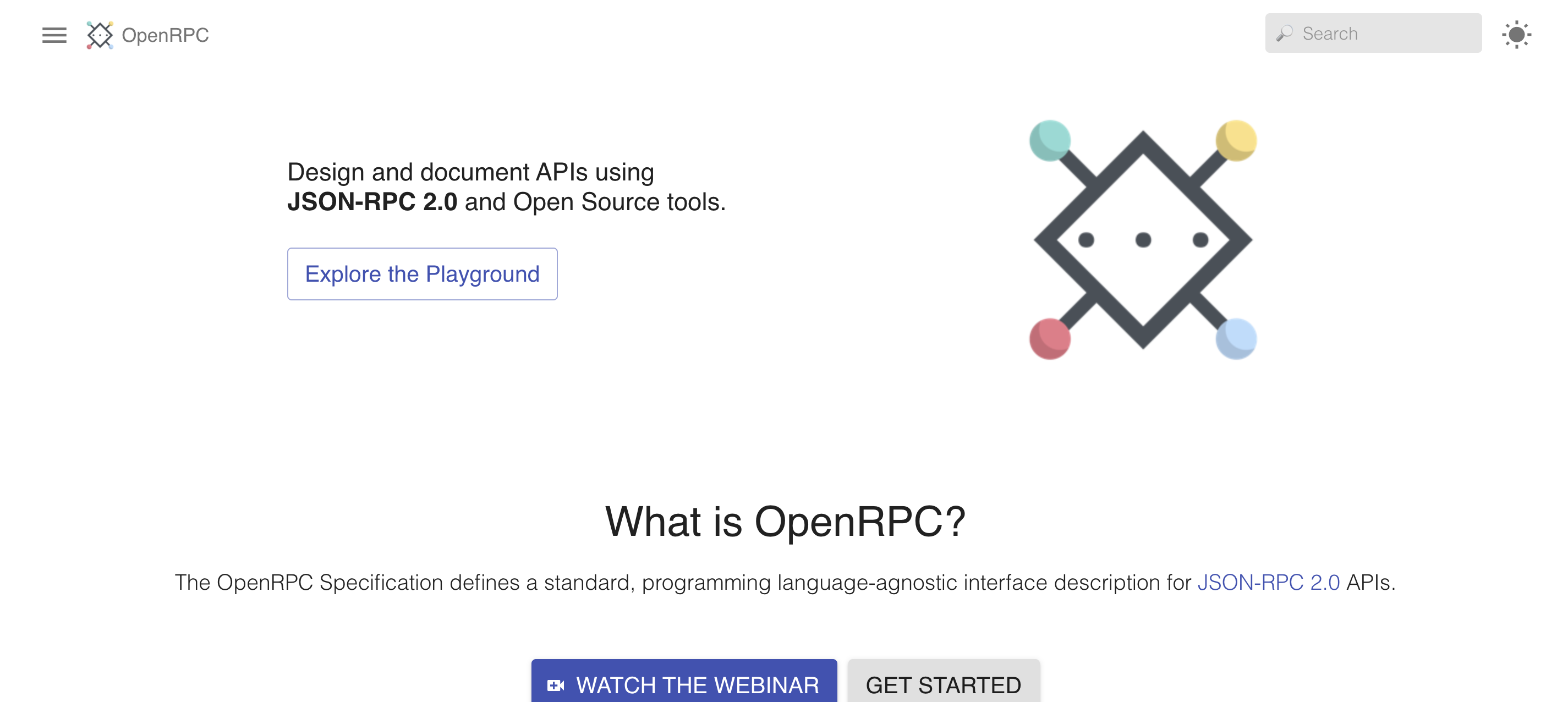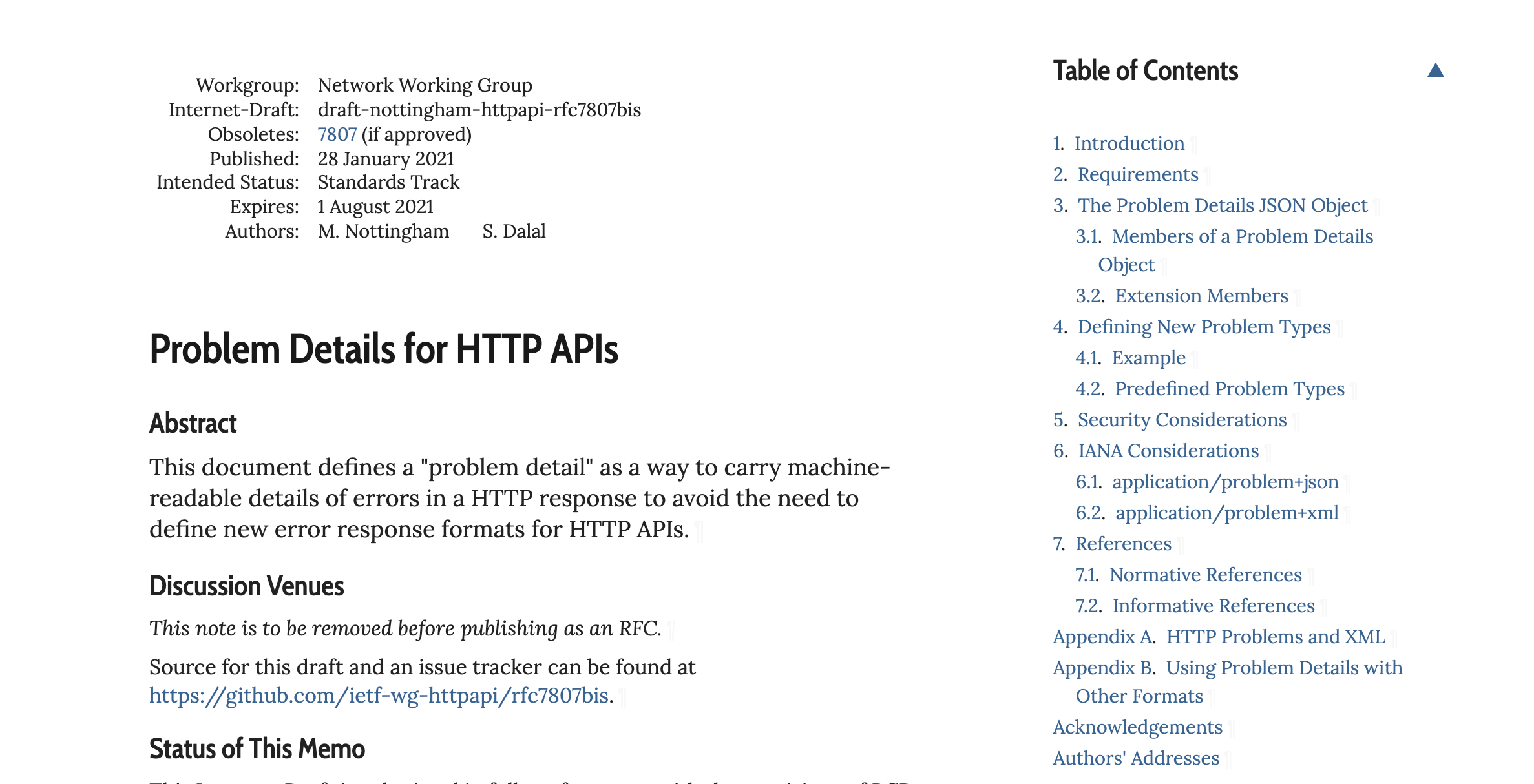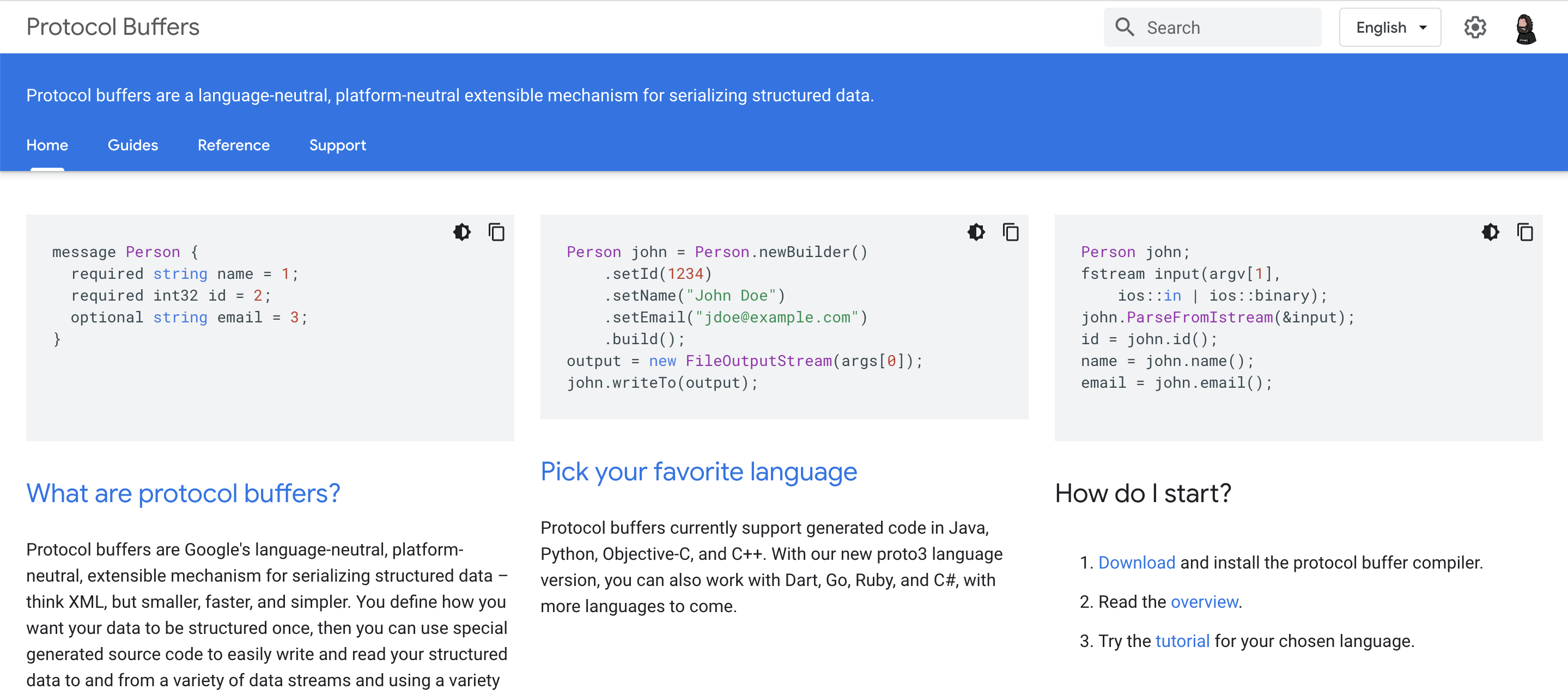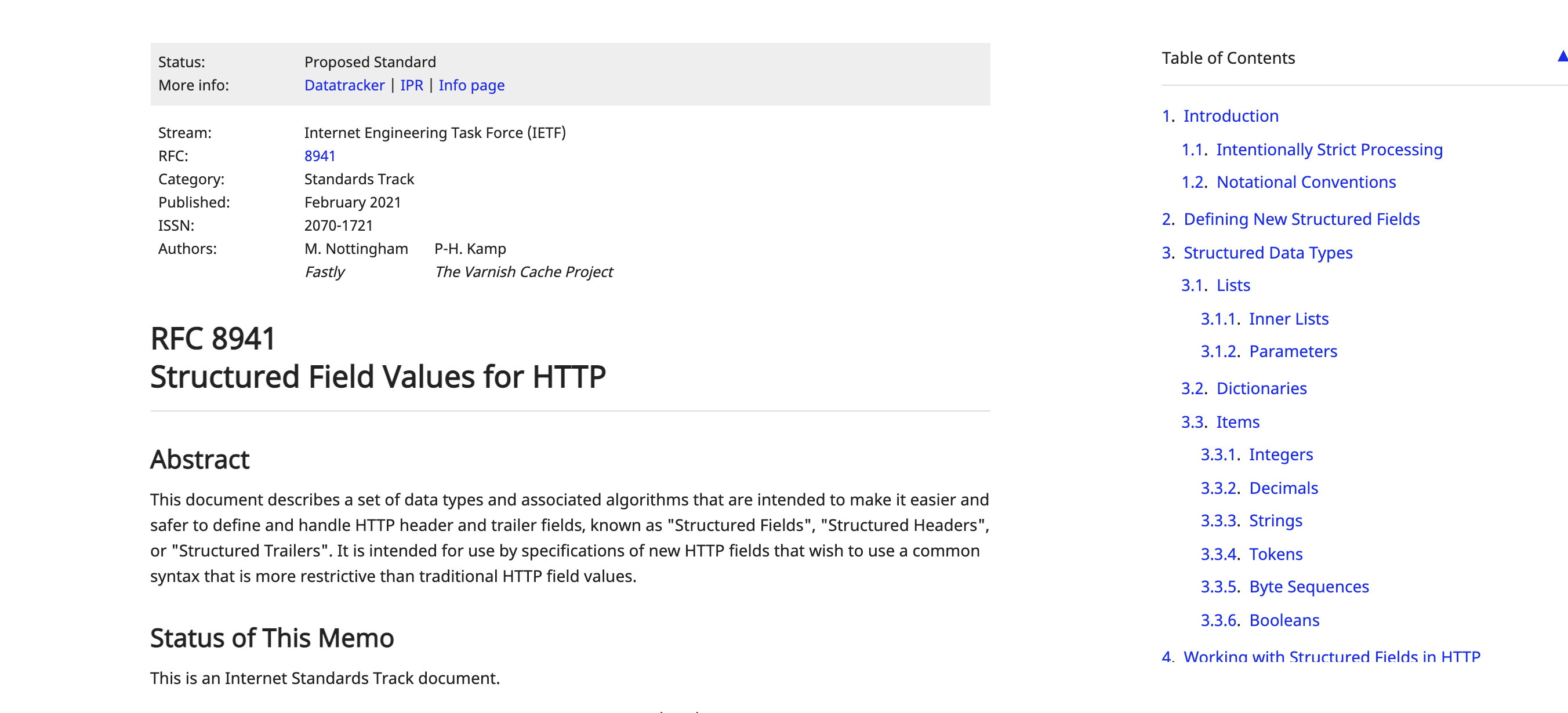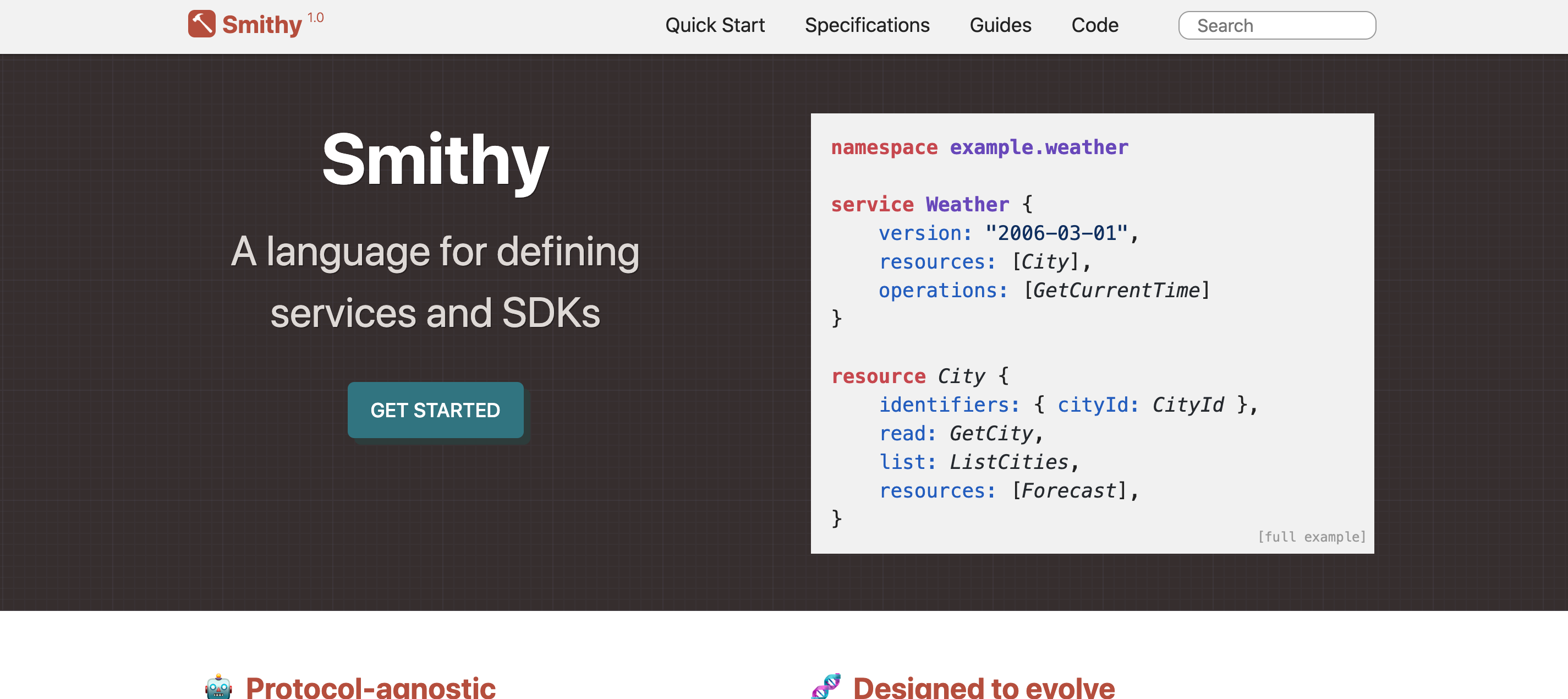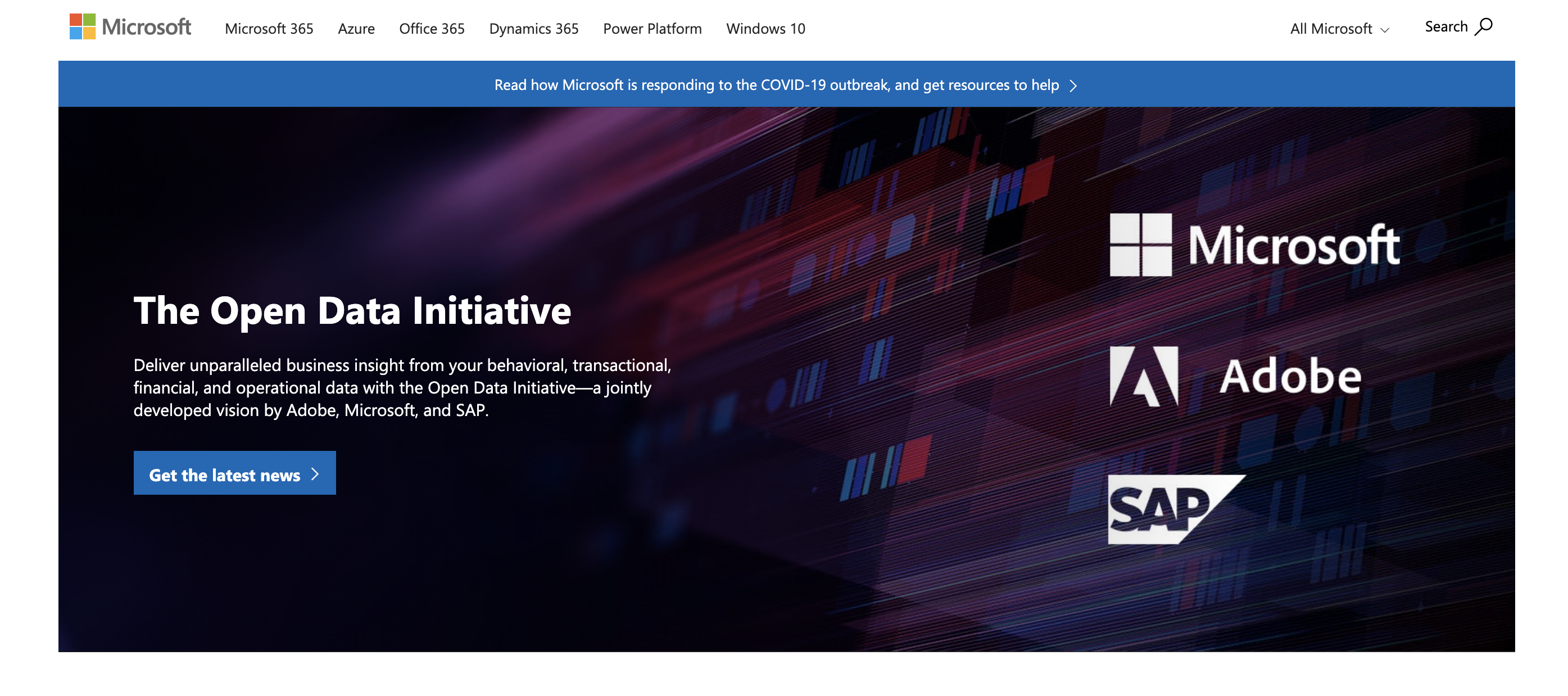API Blueprint
API Blueprint is a documentation-oriented API description language. A couple of semantic assumptions over the plain Markdown. API Blueprint is perfect for designing your Web API and its comprehensive documentation but also for quick prototyping and collaboration. It is easy to learn and even easier to read – after all it is just a form of plain text.
Read More
API Design Systems
An API Design System is a collection of curated standards, guidelines, practices, and principles aimed at helping teams build consistent, quality APIs. If this is your first time checking this out, have a look at the example, read the overview below, and check out the guidelines. The specification has more technical details about the format.
Read More
APIs.json
APIs.json or APIs.yaml is a machine readable format for describing the surface area of API operations. It doesn't describe a single API, but the operates around it, including OpenAPI, Postman collections and other machine readable artifacts, as well as human elements like documentation, pricing, and terms of services.
Read More
Apache Avro
Apache Avro is a data serialization system. Avro relies on schemas. When Avro data is read, the schema used when writing it is always present. This permits each datum to be written with no per-value overheads, making serialization both fast and small. This also facilitates use with dynamic, scripting languages, since data, together with its schema, is fully self-describing.
Read More
Apache Thrift
The Apache Thrift software framework, for scalable cross-language services development, combines a software stack with a code generation engine to build services that work efficiently and seamlessly between C++, Java, Python, PHP, Ruby, Erlang, Perl, Haskell, C#, Cocoa, JavaScript, Node.js, Smalltalk, OCaml and Delphi and other languages.
Read More
AsyncAPI
Open source tools to easily build and maintain your event-driven architecture. All powered by the AsyncAPI specification, the industry standard for defining asynchronous APIs. Providing a sister specification for the OpenAPI specification that can be used to describe event and message driven APIs.
Read More
CloudEvents
Enter CloudEvents, a specification for describing event data in a common way. CloudEvents seeks to ease event declaration and delivery across services, platforms and beyond! CloudEvents is a new effort and it’s still under active development. However, its working group has received a surprising amount of industry interest, ranging from major cloud providers to popular SaaS compani...
Read More
GraphQL
GraphQL is a query language for APIs and a runtime for fulfilling those queries with your existing data. GraphQL provides a complete and understandable description of the data in your API, gives clients the power to ask for exactly what they need and nothing more, makes it easier to evolve APIs over time, and enables powerful developer tools.
Read More
JMESPath
The JMESPath language is described in an ABNF grammar with a complete specification. This ensures that the language syntax is precisely defined. JMESPath has a full suite of data driven testcases. This ensures parity for multiple libraries, and makes it easy for developers to implement JMESPath in their language of choice.
Read More
JSON Schema
JSON Schema is a vocabulary that allows you to annotate and validate JSON documents, allowing you to describe existing data formats, while providing clear human and machine readable documentation, as part of testing, and the validation of data being submitted. JSON Schema is used by both OpenAPI and AsyncAPI to define objects sent back and forth as part of API communication.
Read More
JSON Type Definition
This document proposes a format, called JSON Type Definition (JTD), for describing the shape of JavaScript Object Notation (JSON) messages. Its main goals are to enable code generation from schemas as well as portable validation with standardized error indicators. To this end, JTD is intentionally limited to be no more expressive than the type systems of mainstream programming languages. ...
Read More
JSON Web Token (JWT)
JSON Web Token (JWT) is an open standard (RFC 7519) that defines a compact and self-contained way for securely transmitting information between parties as a JSON object. This information can be verified and trusted because it is digitally signed. JWTs can be signed using a secret (with the HMAC algorithm) or a public/private key pair using RSA or ECDSA.
Read More
JSON Web Token (JWT) Profile for OAuth 2.0 Access Tokens
This specification defines a profile for issuing OAuth 2.0 access tokens in JSON web token (JWT) format. Authorization servers and resource servers from different vendors can leverage this profile to issue and consume access tokens in interoperable manner.
Read More
JSON-LD
JSON-LD is a lightweight Linked Data format. It is easy for humans to read and write. It is based on the already successful JSON format and provides a way to help JSON data interoperate at Web-scale. JSON-LD is an ideal data format for programming environments, REST Web services, and unstructured databases such as Apache CouchDB and MongoDB.
Read More
JSONPath
JSONPath expressions always refer to a JSON structure in the same way as XPath expression are used in combination with an XML document. Since a JSON structure is usually anonymous and doesn't necessarily have a "root member object" JSONPath assumes the abstract name $ assigned to the outer level object.
Read More
JSONata
JSONata is a lightweight query and transformation language for JSON data. Inspired by the 'location path' semantics of XPath 3.1, it allows sophisticated queries to be expressed in a compact and intuitive notation. A rich complement of built in operators and functions is provided for manipulating and combining extracted data, and the results of queries can be formatted into any JSON output...
Read More
OAuth
An open protocol to allow secure authorization in a simple and standard method from web, mobile and desktop applications. OAuth is a way to get access to protected data from an application. It's safer and more secure than asking users to log in with passwords. Use OAuth to let application developers securely get access to your users' data without sharing their passwords.
Read More
Open Policy Agent
Stop using a different policy language, policy model, and policy API for every product and service you use. Use OPA for a unified toolset and framework for policy across the cloud native stack. Whether for one service or for all your services, use OPA to decouple policy from the service's code so you can release, analyze, and review policies (which security and compliance teams love) witho...
Read More
OpenAPI
The OpenAPI Specification (OAS) defines a standard, programming language-agnostic interface description for REST APIs, which allows both humans and computers to discover and understand the capabilities of a service without requiring access to source code, additional documentation, or inspection of network traffic. When properly defined via OpenAPI, a consumer can understand and interact wi...
Read More
OpenID
OpenID is an open standard and decentralized authentication protocol. Promoted by the non-profit OpenID Foundation, it allows users to be authenticated by co-operating sites (known as relying parties, or RP) using a third-party service, eliminating the need for webmasters to provide their own ad hoc login systems, and allowing users to log into multiple unrelated websites without having...
Read More
OpenRPC
The OpenRPC Specification defines a standard, programming language-agnostic interface description for JSON-RPC 2.0 APIs. It is both human and machine-readable. Use cases for machine-readable JSON-RPC API definition documents include, but are not limited to specification driven development, interactive documentation, code generation, documentation, clients, servers, and automation of test c...
Read More
Postman Collections
Postman collections are are machine readable definitions that can used to define an API and used to execute requests against an HTTP API. Providing an artifact that can be used to mock, document, test, automate, and orchestrate with APIs across the API lifecycle.
Read More
Postman Environments
Postman environments are machine readable definitions that can be used to store key / value pairs that can be then applied to a Postman collection at runtime. Storing base URL, API keys, tokens, and other valuable data.
Read More
Problem Details for HTTP APIs
This document defines a "problem detail" as a way to carry machine-readable details of errors in a HTTP response to avoid the need to define new error response formats for HTTP APIs.
Read More
Protocol Buffers
Protocol buffers are Google's language-neutral, platform-neutral, extensible mechanism for serializing structured data – think XML, but smaller, faster, and simpler. You define how you want your data to be structured once, then you can use special generated source code to easily write and read your structured data to and from a variety of data streams and using a variety of languages.
Read More
RAML
A simple but powerful syntax for modeling APIs, enabling the rapid development of APIs using an approachable syntax which can scale from hobby project to enterprise application. RAML lets you see what your API looks like as you design it, using easy to read plain text. Without having to write a single line of code you can not only perfect your API design, but also create a fully functional...
Read More
RFC 8941 Structured Field Values for HTTP
This document describes a set of data types and associated algorithms that are intended to make it easier and safer to define and handle HTTP header and trailer fields, known as "Structured Fields", "Structured Headers", or "Structured Trailers". It is intended for use by specifications of new HTTP fields that wish to use a common syntax that is more restrictive than traditional HTTP field...
Read More
Schema.org
Schema.org is a collaborative, community activity with a mission to create, maintain, and promote schemas for structured data on the Internet, on web pages, in email messages, and beyond. Schema.org vocabulary can be used with many different encodings, including RDFa, Microdata and JSON-LD.
Read More
Semoasa
The OpenAPI Specification, formerly known as the Swagger Specification, is a standard, machine-readable format for REST-style API definitions and documentation. Swagger 2.0 introduced vendor extensions, which allow certain objects to have properties named with an x- prefix, with arbitrary or independently specified property values. Vendor extensions were later renamed to specification exte...
Read More
Smithy
A language for defining services and SDKs. Smithy is designed to work with any programming language, describe services running in any environment, and work with any kind of transport or serialization format. Smithy is extended through traits. Smithy's extensible meta-model can evolve and capture more information about services without breaking changes. Customizable API standards help to au...
Read More
The Open Data Initiative
Deliver unparalleled business insight from your behavioral, transactional, financial, and operational data with the Open Data Initiative—a jointly developed vision by Adobe, Microsoft, and SAP. The Open Data Initiative provides a platform for a single, comprehensive view of your data, bringing together and enriching data from all your lines of business, across all your systems to deliver r...
Read More
gRPC
gRPC is a modern open source high performance RPC framework that can run in any environment. It can efficiently connect services in and across data centers with pluggable support for load balancing, tracing, health checking and authentication. It is also applicable in last mile of distributed computing to connect devices, mobile applications and browsers to backend services.
Read More


